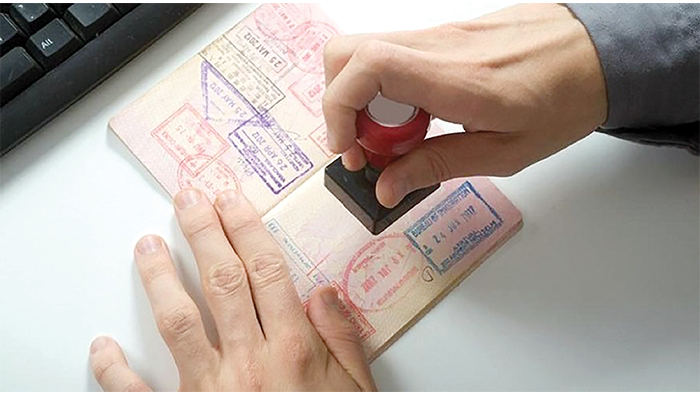

Muscat: A large section of expatriate workers in the Sultanate of Oman has welcomed the recent decision of the Royal Oman Police (ROP) to reduce the salary ceiling for family visas by more than 50 per cent.
In a recent decision, the ROP confirmed that expatriates who are earning over OMR150 will be allowed to bring their family to Oman.
Prior to the latest decision, the minimum salary requirement for expatriate workers to bring their family to Oman was OMR350 a month.
An Indian expatriate worker Benoy K, who works in a private company, was glad that he could now bring his family to Oman.
Benoy said: “I am happy that my salary will no longer be a constraint in bringing my family to Muscat. I earn around OMR300 per month. I never thought that I could bring my wife and my children to Oman. In fact, I used to visit them once annually.” “With this latest decision, I can plan to have my family here. I realise things are costly but I can now think of bringing them,”he said.
They always wished to come to Oman as I used to describe how beautiful the country is. Maybe, we may not save money, but to have a family stay together is a price I wish to pay.”
Benoy added: “My wife is educated and maybe she can try to find a job here to ease our financial burden. If it clicks, it will be good but even if she doesn’t get a job, I am happy to plan their stay. It may take some time for me to arrange my finances, but I am happy that my salary is not a hurdle in bringing them.”
Experts have predicted that the move may spur the domestic economy.
“With families joining, the local economy may get a boost as there would be an increase in spending habits,” said Mohammed al Maimani, a local shop owner.
The minimum monthly income rule for ‘family joining visa’ was introduced by Oman in 2011. In 2017, the government reduced the requirement from OMR600 to OMR350 to qualify for a dependent visa.
The latest move is aimed at promoting family reunification and has a positive impact on the well-being of expat workers and their families, as they can now reunite and build a more stable life in Oman.
The new policy also grants sponsors the authority to decide on their family’s status, as they may be in a better position to evaluate their capacity to support their family in Oman.
The decision to reduce the salary requirement is also expected to provide a significant boost to Oman’s economy by attracting skilled workers with family requirements much easier paving the way for greater expats’ spending.
It may be mentioned that there was a sizable exodus of expat workers over the past few years due to the impact of COVID-19 pandemic.
Joey, a Filipino expatriate, also was happy that the minimum salary requirement to get a family dependent visa, has been reduced.
“It is a good decision as now we can plan to get our aged parents here to stay with us. We are always concerned about their wellbeing but we can now plan to bring them here. We can take better care of our parents,” said the sales executive, who works with her husband at a leading apparel store.
Salauddin, a worker from Bangladesh, said: “It is a positive move but not many can afford to bring their families with the rising cost of living here in Muscat. Maybe, workers living in the interior regions can still manage. For me, to get my wife and my three-year old child with a salary of OMR 200 per month, may not be a feasible idea. However, I will try to save more so that they can at least visit Oman once a year on a family dependent visa. One of the biggest compromises we make is leaving our families back home. This move can bring smiles on many faces.”
Anand Rai, an Indian expatriate said: “From the economic perspective, when families of expatriates are here,their increased local expenditure is an advantage for the country. However, it is an added burden on the ordinary workers who try to make ends meet.These workers will come under pressure to bring their families here. Accommodation, food and education expenses will be a burden for them. The move may also reduce the remittances to the respective nations, in particular, in the sub-continent, if families start staying in Oman as the savings will drop considerably.``